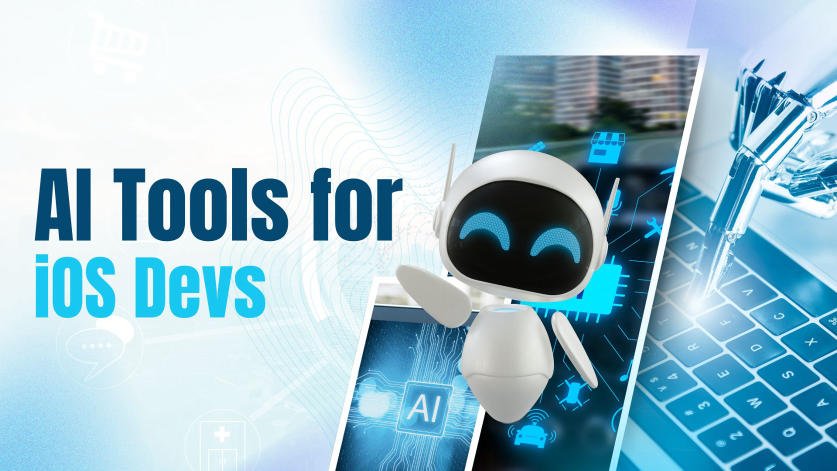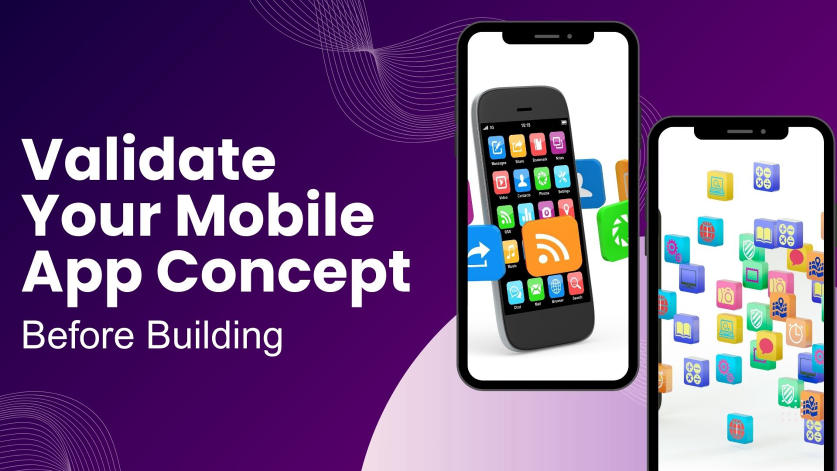In a mobile-first universe, every great idea inevitably becomes an app. But as the mobile space becomes more competitive, Swift app development is changing quickly — and developers are increasingly using AI and machine learning to maintain the pace.
According to a Market. According to the US report, it is evident that the iOS sector has covered with more than 52% of the worldwide AI-based mobile applications market share, which showcases Apple’s effectiveness in being smart enough to develop secure and highly responsive apps. Whether you belong to a mobile app development agency or are an iOS developer on your own, figure out how to get the most out of AI technology for your projects.
The Rise of AI in iOS App Development: Trends and Statistics
The truth is, people now demand apps that think for them. The use of AI is also changing the way we communicate with our phones, from personalised recommendations to voice assistants and smart predictions.
In fact, the worldwide mobile AI market is poised to expand at a CAGR of upwards of 26% over 2024–2030 and much of that comes directly from iPhones and iPads. Apple’s ecosystem provides developers with the ideal platform to create smarter applications using Core ML, Create ML and the new Foundation Models framework.
AI is no longer just for tech giants. Even startups and small companies collaborating with an iOS development company can now incorporate sophisticated ML features into their apps — without the requirement of a huge AI team.
Core ML: On-device Machine Learning for Swift App Development
If you’re building an app in Swift, chances are good that you’ve heard about Core ML — Apple’s native machine learning framework. It also enables you to bundle intelligent features such as image analysis, object detection, and language modelling with your app — all while running on the device.
This is why Core ML is so big:
- It’s private and secure: The data never leaves the user’s phone, which is why it works so well for applications such as health care or banking.
- It’s fast and efficient: With Apple Inductive Learning, Core ML processes models locally, without having to leverage the cloud.
- It’s available offline: Ideal for those in low-network areas, or privacy-conscious apps.
Core ML allows AI-based app development companies to implement intelligent actions such as tracking gestures, face ID and predictive text within the iOS apps. It’s the easiest way to make your Swift app feel actually “intelligent”.
One example is SmartGym, one of Apple’s showcase apps that uses Core ML to do rep counting (automatically tracking workouts by analysing movement patterns).
Create ML: Making AI Simple for Everyone
Not everyone is an AI expert — and that’s exactly why Apple created Create ML. It’s a tool that gives developers the power to train custom machine learning models with no need for complicated code. You can simply drag and drop your datasets, adjust the training parameters, then bring the resulting model into your Swift project.
It’s ideal for:
- Image and object classification (for photo/shopping apps)
- Emotion analysis (for customer support chat apps)
- For content or e-commerce platforms – recommendation systems
If you work at a mobile app development agency, Create ML lets you empower your mobile users with AI-powered features without needing to wait for your client’s data science team.
Apple’s Foundation Models: The Next Generation of Smart iOS Apps
And now, with its release of the Foundation Models framework, Apple has taken a quantum leap forward by making it possible for developers to embed large language models (LLMs) directly into their apps.
Imagine having users have a conversation with your app, summarise text, create images or automate tasks — and all of it will be powered by Apple’s on-device intelligence.
This framework makes privacy and performance a priority, ensuring all the processing is securely done on-device, according to Apple Newsroom. That’s a green light for businesses to deploy AI without putting user trust or compliance in jeopardy.
It cannot open up even more doors for the best chatbot development company, who can mould iOS chatbots to react in a more natural manner, which can also include being able to comprehend context, tone and user preferences.
Market Trends and Opportunities in AI-Powered Mobile Apps
Here’s the exciting part: the market opportunity.
Straits Research reports that the worldwide mobile app development market is expected to exceed $750 billion by 2033. One large swatch of this growth will be in AI app development services, as more businesses search for apps that automate, predict and personalise.
And this isn’t only about the iPhones. Mobile automation. Many providers of RPA services in USA are now mixing robotic process automation with mobile solutions, which allow apps to handle repetitive tasks automatically. This AI + RPA combination is yielding massive gains in efficiency across banking industries as diverse as logistics and healthcare.
Practical AI Use Cases for iOS Developers
If you’re willing to incorporate AI, these are some high-impact areas where you can do it:
| Use Case | AI / ML Capability | Benefit |
| Personalized Recommendations | Train models using Create ML | Improve engagement & retention |
| Visual Recognition | Core ML + Vision API | Enable AR filters, product scanning |
| Natural Language Chatbots | Foundation Models + NLP | Offer 24/7 intelligent assistance |
| Predictive Analytics | Machine Learning models | Predict user actions & preferences |
| Automation | Combine AI + RPA | Save time and operational costs |
And even if you’re not well-versed in ML, it is very easy to hire machine learning developers or iOS machine learning engineers who can implement these features. Today, many such firms provide AI consulting for mobile apps to assist teams in developing and operationalising smart systems in stages.
What are the Best Practices for AI-Powered Swift App Development
Creating apps fueled by A.I. is thrilling, but it also takes strength and along with proper strategy. Here are some simple tips:
- Start small: Remember, don’t try to do everything at once — choose a clear specific single use case first.
- Optimise for mobile: Compress and quantise your model to maintain high performance and low energy consumption.
- Protect user data: Do as much processing on-device as you can to match Apple’s privacy standards.
- Stay updated: Stay tuned to Apple’s developer machine learning page for Core ML, Create ML and new SDK updates.
- Test and refine: AI models also get smarter with actual data. Gather feedback and iterate.
In case you have no clue to go with, when you build an app like Siri or make a similar kind of custom AI assistant, you should cooperate with the iOS app development partner who knows how to tackle Custom AI App solutions, since it can facilitate your project faster and reduce friction regarding time.
Why Businesses Are Investing in AI-Based iOS Development
No matter the stage, from start-up to corporation, businesses around the world are outsourcing their iOS development services, such as Swift and AI pros. The goal? Faster innovation, cheaper costs and easier user experiences.
If or when you are hiring iOS developers, or AI app developers, look for the team that has good experience delivering machine learning app development services and mobile AI integration solutions. It is these specialists who not only comprehend the coding side but also know how to effectively train, test and optimise AI models.
Collaborating with an AI/ML and Swift app development company helps you get a product that is on par with the trends and makes use of up-to-the-minute frameworks such as Core ML or Apple’s Foundation Models.
A Match Made in Heaven: Swift + AI + Human Creativity
Swift is still one of the easiest languages in the world for developers. When combined with machine learning and automation, it provides endless opportunities for creating smarter, faster and more human-centric apps.
AI combined with devices like Core ML and Create ML means that smaller teams can compete with the majors. Companies that take the plunge now — by working with a winning iOS development partner or mobile app development agency — can get ahead of competitors and deliver next-level user experiences.
Final Thoughts
AI isn’t supplanting iOS developers – it’s enabling them. Developers can take advantage of tools like Core ML, Create ML and Apple’s Foundation Models to turn their Swift app development into a learning application.
Whether you want to develop AI-powered IOS apps or are diving into AI consulting for mobile apps, or just want to upgrade your projects – the future of app development is here already, and it’s being driven by AI.




